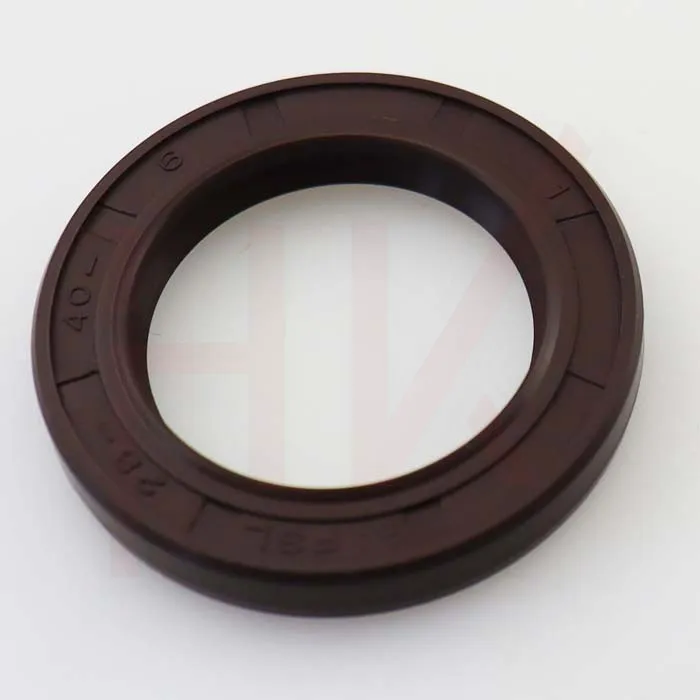دېكابىر . 19, 2024 19:47 Back to list
Understanding the Purpose and Role of Oil Seals in Mechanical Systems
The Function of Oil Seals
Oil seals, also known as oil seals or rotary shaft seals, play a pivotal role in the mechanical engineering domain. Found in a wide range of applications, from automotive to industrial machinery, they serve crucial functions that ensure efficiency, longevity, and safety within machinery systems. To better understand their importance, it is vital to explore what oil seals are, how they function, and the benefits they provide.
What are Oil Seals?
An oil seal is a mechanical component designed to retain lubricants and prevent contaminants from entering machinery. It is typically made from elastomeric materials, which offer flexibility and durability. The design of an oil seal usually consists of a circular ring with a lip that makes contact with a rotating shaft. This design allows the seal to accommodate movement while maintaining a strong barrier against leakage.
The Primary Functions of Oil Seals
1. Leak Prevention The primary function of an oil seal is to prevent the escape of lubricants from within machinery. In systems where lubrication is crucial for the smooth operation of moving parts, any loss of lubricant can lead to increased friction, wear and tear, and potential machinery failure. Oil seals ensure that the oil remains contained within the designated areas, thus maintaining optimal lubrication levels.
2. Contaminant Exclusion In addition to retaining oils and lubricants, oil seals also act as barriers against dirt, dust, and other unwanted contaminants. These foreign particles can severely damage internal components if they manage to infiltrate the machinery. By effectively sealing off the interior from external environments, oil seals help maintain cleanliness and efficiency.
3. Pressure Maintenance Many applications experience varying levels of internal pressure due to the movement of parts, hydraulic forces, or even thermal expansion. Oil seals assist in maintaining appropriate pressure levels within equipment. Proper sealing is essential for hydraulic systems, where maintaining pressure ensures the machinery operates efficiently and effectively.
4. Vibration and Noise Reduction Oil seals help to mitigate vibrations and reduce noise generated by mechanical components. By sealing the gaps and ensuring a snug fit, these seals help dampen the vibrations that would otherwise resonate through the machinery, leading to a quieter and smoother operation.
what is the function of oil seal

5. Temperature Regulation In machinery operating under high temperatures, oil seals help control the thermal expansion of lubricants. They help keep the lubricant within the specified temperature range, ensuring that it maintains its viscosity and lubricating properties. This stability is critical for preventing overheating and potential damage to components due to inadequate lubrication.
Benefits of Using Oil Seals
The use of oil seals offers numerous advantages, including
- Increased Equipment Life By preventing oil leaks and contamination, oil seals significantly enhance the longevity of machinery components. Equipment that operates with proper lubrication experiences less wear and tear, leading to reduced maintenance costs and extended operational life.
- Operating Efficiency Effective sealing reduces energy losses associated with friction and wear. This ensures that machinery operates at optimal efficiency, ultimately leading to cost savings in energy consumption.
- Safety and Reliability In many applications, especially in automotive and aerospace industries, the safety of the machinery is paramount. Oil seals contribute to the reliable performance of equipment by preventing failures that could lead to hazardous situations.
- Ease of Maintenance With the use of oil seals, maintenance tasks become more manageable. Reduced leakage and contamination mean that equipment can often run longer between service intervals, saving time and resources.
Conclusion
In summary, oil seals are indispensable components in the world of machinery. Their primary functions—leak prevention, contaminant exclusion, pressure maintenance, vibration reduction, and temperature regulation—highlight their importance in ensuring the efficient and reliable operation of various systems. The benefits they provide, including increased equipment life, improved operating efficiency, enhanced safety, and ease of maintenance, reinforce the need for proper oil seal selection and maintenance in any machinery application. As technology continues to evolve, the role of oil seals will remain crucial in the pursuit of optimized mechanical performance.
-
The Trans-formative Journey of Wheel Hub Oil Seals
NewsJun.06,2025
-
Graphene-Enhanced Oil Seals: Revolutionizing High-Pressure Oil Sealing
NewsJun.06,2025
-
Future of Hydraulic Sealing: Advanced Intelligent TCN Oil Seals
NewsJun.06,2025
-
Don’t Let a Broken TCV Oil Seal Ruin Your Day
NewsJun.06,2025
-
Bio-Inspired Dust Seals for Better Sealing Performance
NewsJun.06,2025
-
Biodegradable and Sustainable Hydraulic Seal Materials
NewsJun.06,2025
-
Top Oil Seal Solutions for Your Industrial Needs
NewsMay.22,2025
Products categories
















